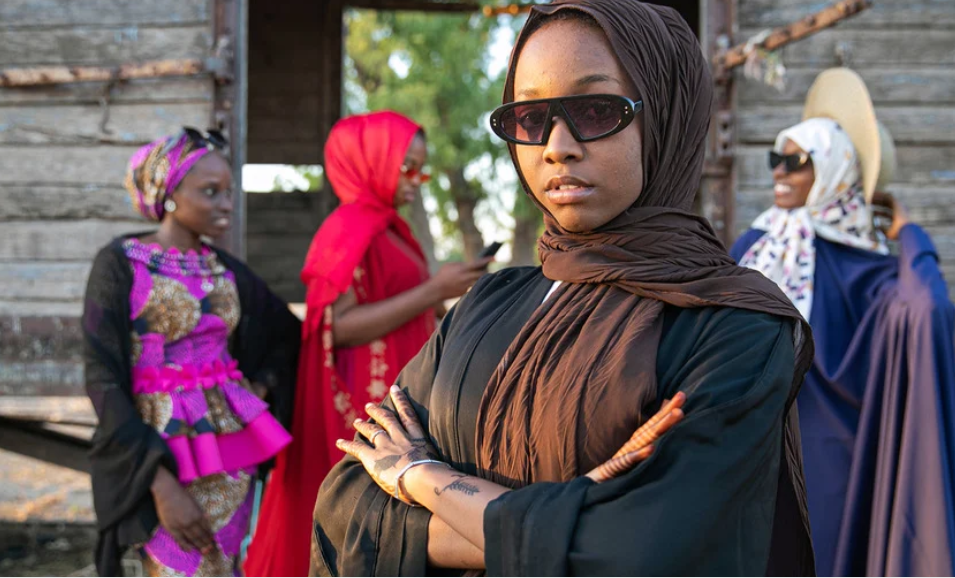Which Way, Nigeria? I want to know, like the late great Sunny Okosun sang about.
Is a New Nigeria Is Possible? You’re damn right it is. But, as we hustle and bustle through our daily lives, is the giant of Africa truly striding forward, or are we just doing the “legwork,” marking time in place? It’s a question that echoes in our markets, on our crowded streets, and in the quiet corners of our homes. Are we building towards a better future, or are we just hoping it shows up at our doorstep one day?
Let’s look at the numbers, shall we? You know, those things our leaders sometimes conveniently forget? On one hand, youth unemployment is at an all-time high. Terrible! .But hold on a minute… inflation is chilling at about the same level, with food prices skyrocketing over 40% in just two years. That’s like running a marathon with concrete shoes, trying to outrun your grocery bill! It’s a daily battle for millions of Nigerians, and while we’re renowned for our resilience, our stomachs sometimes demand more than just hope. A sad reality that we must address head on.
And what about the future, our most precious asset – our children? A staggering 20 million+ Nigerian children are out of school. That’s not just a statistic; that’s a whole generation potentially missing out on the tools to build a better life for themselves and for Nigeria. Imagine the collective genius, the untapped potential, sitting idle. Plus, a whopping 63% of Nigerians are scraping by below the $1.90/day poverty line, with over 133 million in multidimensional poverty. You could cry for Nigeria, right? It’s a reality that hits hard, reminding us of the urgent need for a decisive change.
The challenges don’t stop there. Since 1999, we’ve lost over 5 years of academic progress to ASUU strikes. Five years! That’s like a whole university degree gone down the drain, setting back countless young minds. Our government structures? Let’s just say they’re doing the “shaku shaku” under the weight of poor power supply that leads to daily grid collapses, bad roads that could swallow a car whole, fragile institutions, and corruption that’s everywhere you look – from the highest offices to the smallest interactions. It’s enough to make even the most optimistic among us sigh. Let’s not even talk about Benue, Bokkos, Borno and Zamfara.
But hey, we’re Nigerians right ! We know how to “suffer and smile,” survive with resilience, humour, and hope. We’re like the cockroaches of nations – nearly indestructible, always finding a way to persist. We joke about “NEPA taking light” and weave tales of our incredible endurance. But resilience isn’t a replacement for real change. It’s like putting a bandage on a broken leg when what you really need is a full cast and proper rehabilitation. We deserve more than just surviving; we deserve to thrive.

Nigeria houses Africa’s largest population, is the world’s 6th-largest oil producer, and is endlessly creative. We’re bursting at the seams with potential! Think about our demographic dividend – a massive youth population ready to innovate, create, and lead. It’s a superpower, a vibrant force that can transform our nation. We’re not just a country; we’re a powerhouse waiting to be unleashed! This young, energetic population, if properly empowered with education and opportunities, holds the key to unlocking unprecedented growth and development. Yet, we still reel from daily electrical grid collapses and poor infrastructure. It’s like having a Ferrari but only being able to drive it on a dirt road, constantly hitting potholes. Funny thing, this is actually a reality in our country.
Our media ecosystem cries out for authentic, non-elite narratives. We’re tired of hearing the same old stories from the same old voices. This is the core reason The Nigerian Network (TNN) offers value-driven conversations, podcast, news, opinions and reports. We believe in “The New Nigeria(n)” perspectives, because this is more than just news; it’s our belonging. It’s about seeing ourselves reflected in the stories, understanding the struggles and triumphs of everyday Nigerians, and feeling connected to a shared vision for the future.
The real question is: Which way will you choose?
It is easy to say “A New Nigeria Is Possible,” but it must be an intentional goal. It’s not a slogan; it’s a call to action, message, a commitment that requires conscious effort from each of us, every single day. It requires us to move beyond talk and into tangible steps.
That’s why we launched the “A New Nigeria Is Possible” podcast series, spotlighting unity, youth leadership, and systemic change. Our content elevates citizen voices through audio stories, civic education, and layered dialogue. We’re not just narrating change; we are trying to build change. We’re providing a platform for those unheard voices, amplifying the conversations that truly matter to the future of our nation.
Our Approach is Simple:
- Civic Storytelling: Podcasts that humanise statistics and inspire generations, making complex issues relatable and actionable.
- Institutional Anchoring: Education, diversity, democracy – these aren’t just slogans. They are pillars we seek to reinforce through informed dialogue.
- TNN the People’s Media: By everyday Nigerians, for everyday Nigerians. This ensures authenticity and relevance, bridging the gap between narratives and lived realities.
- Strategic Messaging: Faith that change is possible—not wishful thinking. It’s about fostering a belief rooted in practical steps and collective effort.
Which Way, Nigerian?
The answer is chosen daily—through our X spaces, stories, content generating, citizen engagement videos, and solidarity.
Every choice we make, big or small, contributes to the direction our nation takes. It’s in every shared experience, every act of kindness, every demand for accountability, every voice.
The Nigerian Network (TNN) has built the stage. Now we need the stories, the content. The strategies to turn mouths like yours into movements that rewrite the narrative, one data-rich story, one authentic voice, one shared experience at a time. This isn’t just about passive consumption; it’s about active participation. It’s about leveraging our demographic might, transforming our challenges into opportunities, and proving that the “New Nigeria” isn’t a dream, but a destination we’re actively charting together.
All this is possible because you guys reading this now are possible, and a new Nigeria is indeed possible.
